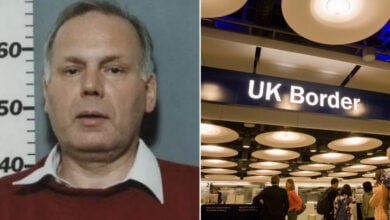Can the Taliban govern Afghanistan?

The Taliban leadership took a long time to announce their interim government — three weeks after taking control of Kabul.
Analysts say the fight for Panjshir province kept them busy all this while, and once the last resistance stronghold fell to the group, their spokesman, Zabiullah Mujahid, unveiled the caretaker government on Tuesday.
Even though it is just a caretaker government, and what the Taliban’s actual government will look like remains unclear, Afghanistan’s Islamist rulers face a tough task running the country.
Internal rifts
There had been reports of a tug-of-war among Taliban factions over the allocation of key posts in the new government. The transitional setup suggests that Afghanistan’s new rulers have been able to unify their ranks, at least for now.
Mullah Hasan Akhund has been nominated as acting prime minister, while Sirajuddin Haqqani will serve as acting interior minister. The decision to delegate a senior position to Haqqani is proof that the Taliban did not want to irk the powerful Haqqani Network, which is believed to have become a suborganization of the Taliban in its own right.
Mullah Yaqoob, the son of the Taliban founder Mohammed Omer, will be acting defense minister and Amir Khan Muttaqi will be acting foreign minister in the new setup.
In his column for Pakistan’s Dawn newspaper, Zahid Hussain, a senior political analyst, wrote that “the most serious challenge for the Afghan Taliban is to maintain the unity within their ranks.”
“Some fear that the formation of an interim government will further widen the cleavage. The struggle between the moderates who would want to take a break from some of the harshest legacies of the previous dispensation and the hardliners who are not willing to reform could sharpen,” he wrote.
“While the Taliban may have appeared as a monolith during the war, the differences over military tactics and other policy matters kept surfacing. Yet the disagreement didn’t affect the resistance. The end of the war has widened the fault lines,” Hussain added.
Not inclusive
Taliban officials had claimed that their new government would include different political and ethnic groups, but the interim setup is dominated by their old guard.
“The Taliban do not see the need for an inclusive government anymore. For them it is more important that powerful figures are leading their government so that they can crush potential resistance movements,” Sami Yousufzai, an Afghan journalist, told DW.
“They have appointed ministers on the basis of their loyalties to the group,” he added.
The European Union on Wednesday said that the Taliban-appointed caretaker government “does not look like the inclusive and representative formation in terms of the rich ethnic and religious diversity of Afghanistan we hoped to see and that the Taliban were promising over the past weeks.”
The 27-nation bloc says the formation of an “inclusive and representative” transitional government is vital for its engagement with the Taliban.
The Taliban also reportedly disbanded the Ministry for Women’s Affairs, days after violently clamping down on women-led protests against curbs to their freedoms under Taliban rule.
There are also no women in the new power structure, something protesters in Kabul had been calling for as women fear losing their hard-won rights.
Faiz Mohammad Zalan, a lecturer at the University of Kabul, says that although the Taliban are predominantly Pashtun, they do not believe in appointing people on the basis of their ethnic affiliations.
“Basically, the Taliban wanted to put their most powerful leaders in charge of ministries to control the situation in Afghanistan,” Zalan told DW.
Dependence on international aid
But it won’t be an easy task to “control” a multiethnic, war-torn and impoverished country like Afghanistan.
Protests have already erupted across the country, with anti-Taliban groups defying the new regime.
The new Afghan rulers also need international aid, but certain prominent figures in the caretaker government have already angered Western countries.
Some of the interim cabinet members are accused of carrying out attacks on US forces over the last two decades.
Akhund, the acting premier, is on a UN blacklist, while Haqqani, the interior minister, is wanted by the US’ Federal Bureau of Investigation.
But Afghan journalist Yousufzai says the international community has no other option but to engage with the Taliban. “I think the Western countries don’t care who heads an Afghan ministry. They will, however, keep a close eye on the government’s policies.”
Even if the Taliban managed to keep their ranks united and avoid international sanctions, running the country will still prove to be a difficult task for them, says Ahmad Saidi, a former Afghan diplomat.
“Most Taliban ministers are uneducated and are not familiar with government affairs. Some interim ministers are still facing UN sanctions and won’t be able to travel abroad,” he told DW.
“They still don’t have a minister for health and a minister for commerce. We don’t know what will happen to these government posts.”
SOURCE: DW News
Join the conversation and have your say on Thailand news published on The Thaiger.
Thaiger Talk is our new Thaiger Community where you can join the discussion on everything happening in Thailand right now.
Please note that articles are not posted to the forum instantly and can take up to 20 min before being visible. Click for more information and the Thaiger Talk Guidelines.









